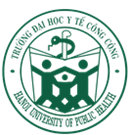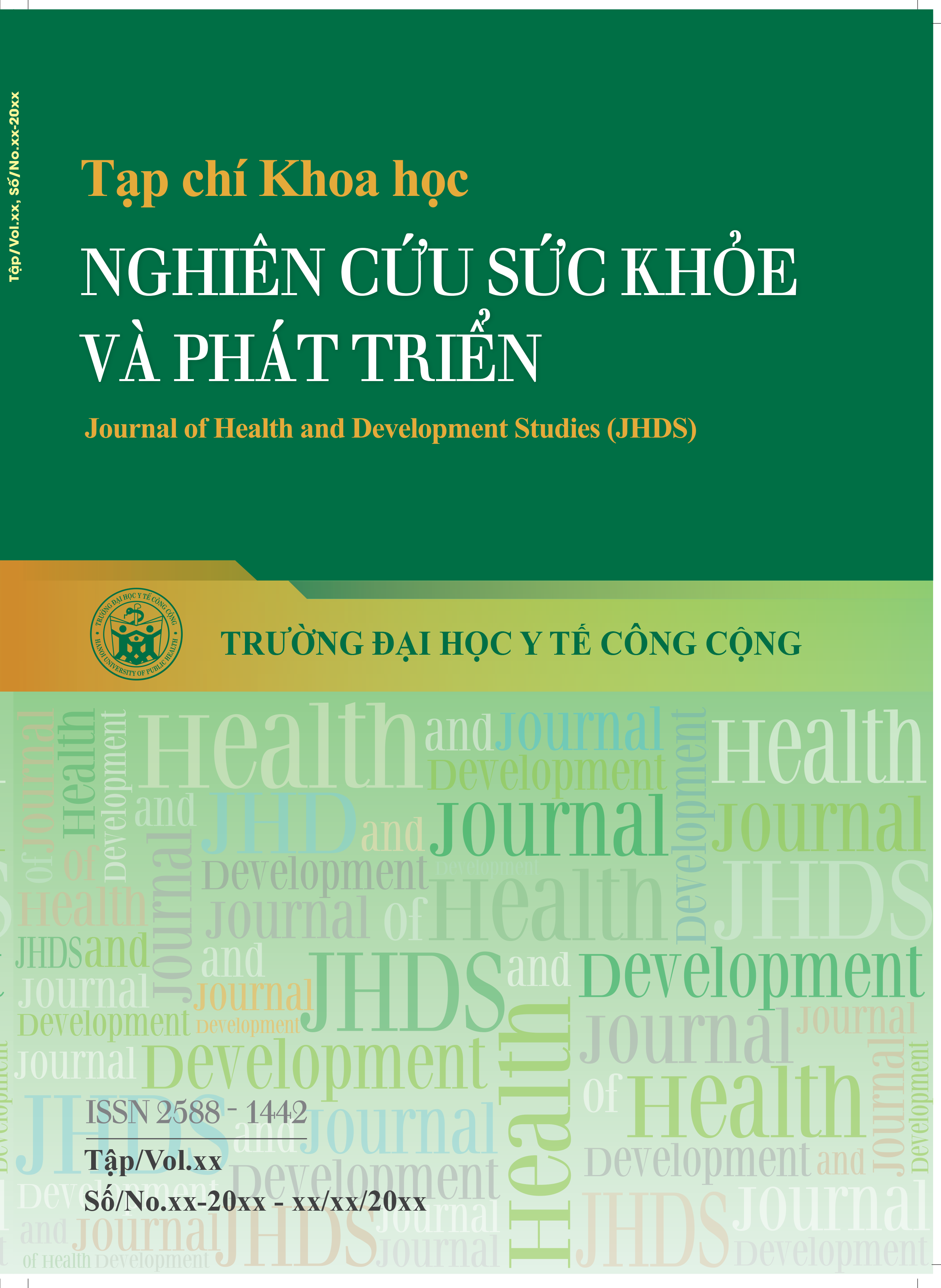Tạp chí
Khoa học Nghiên cứu Sức khỏe và Phát triển
(Journal of Health and Development Studies – JHDS)
Trường Đại học Y tế công cộng
ISSN (Print): 2588-1442
ISSN (Online): XXXX-XXXX
https://jhds.edu.vn
Information searching behaviors among Vietnamese students during first wave of the COVID-19 pandemic
- Mã bài báo : SKPT_20_094
- Ngày xuất bản : 26/03/2021
- Số trang : 72-80
- Tác giả : Nguyen Hoang Thuy Linh
- Lượt xem : ( 1306 )
Danh sách tác giả (*)
- Nguyen Hoang Thuy Linh 1 - Hue University of Medicine and Pharmacy, Hue University
- Tran Xuan Minh Tri 1 - Hue University of Medicine and Pharmacy, Hue University
- Nguyen Thi Mien Ha 2 - Hue University of Medicine and Pharmacy, Hue University
- Hoang Dinh Tuyen 3 - Hue University of Medicine and Pharmacy, Hue University
- Tran Thi Mai Lien 4 - Hue University of Medicine and Pharmacy, Hue University
- Vo Van Thang - Hue University of Medicine and Pharmacy, Hue University
Objective: This study aims to describe the COVID-19 related information searching behaviors and the relationship between those behaviors and the satisfaction with the COVID-19 related information searched on the Internet among university students during first wave of the COVID-19 pandemic in Vietnam.
Methods: A cross-sectional study was conducted by a web-based survey from April 25, 2020 to May 9, 2020. Convenient sample with the method of snowball sampling was applied, 1003 students were obtained totally. Multivariable logistic regression model was used to identify the associations between those behaviors and the satisfaction with the COVID-19 related information searched on the Internet.
Results: Search engines were the most popular sources used for online COVID-19 information seeking (95.3%), followed by Social media (92.4%) and News portals (91.6%). About 90% of participants searched the information related to the current spread of the coronavirus, followed by symptoms of the COVID-19 (81.8%) and individual measures to protect against infection (81.9%). Vietnamese remains the main language of the sources with 70.3% of participants used. There’s 45.8% of participant satisfied about the COVID-19 related information. The group of participants who sought information about prevention was 0.47 times less dissatisfied than the group that did not search.
Conclusion: There are significant associations between searching topics related to prevention and the COVID-19 related information satisfaction searched on the Internet. These results highlight the need for providing efficient information related to the COVID-19 pandemic as well as seriously consider focusing more on social media to better bring official information to the public.
- DOI : https://doi.org/10.38148/JHDS.0502SKPT20-094
- Chủ đề :
- Loại bài báo : Nghiên cứu gốc
- Chuyên nghành : Chuyên Ngành Y
 Thông tin liên hệ : Tran Xuan Minh Tri
Thông tin liên hệ : Tran Xuan Minh Tri  Email : txmtri@huemed-univ.edu.vn
Email : txmtri@huemed-univ.edu.vn Địa chỉ : Hue University of Medicine and Pharmacy, Hue University
Địa chỉ : Hue University of Medicine and Pharmacy, Hue University
Bài báo liên quan
- The prevalence of stress-related covid19 quarantine among secondary-and-highschool students in northern Vietnam
- The relationship between T-CD4 recovery and HIV disclosure status among HIV-infected patients on first-line antiretroviral therapy at the Hospital for Tropical Diseases in Ho Chi Minh City
- The cost of HIV testing at five district health facilities intervented poct model to confirmation HIV detected
- Commentary: A Significant Transition of Mode of Teaching and Studying to meet the Covid-19 challenges in an university in Vietnam
- Information searching behaviors among Vietnamese students during first wave of the COVID-19 pandemic
- Health care seeking behaviuor among the elderly in Hue City
- Key breeding sites of Aedes mosquitoes in Huaylau village, Pakse city, Champasack province, Lao People Democratic Republic 2019
- Cost-effectiveness of interventions for people with dementia without caregiver: A Systematic Review
- Sleep quality among youngster in Danang city, Vietnam: A cross-sectional study
- Job demand and control among clinical nurses in a provincial hospital and related factors: Results from a cross-sectional study in 2020.
- The association between smoking status and tobacco outlets density and proximity: A cross-sectional study with geographical data from CHILILAB, 2016
Bài viết mới nhất
- Một số trang web hữu ích đối với các nhà khoa học
- Dành cho chuyên gia
- Tạp chí Khoa học Nghiên cứu sức khỏe và Phát triển duyệt tối đa 1,0 điểm ngành Y trong Danh mục Tạp chí khoa học được tính điểm của Hội đồng giáo sư Nhà nước
- CHÚC MỪNG NGÀY BÁO CHÍ CÁCH MẠNG VIỆT NAM (21/6)
- GS.TS Hoàng Văn Minh - Hiệu trưởng Nhà trường 'lọt top' nhà khoa học có chỉ số trích dẫn hàng đầu thế giới

 File toàn văn
File toàn văn